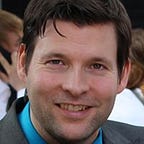The Criminals Get Guns Anyway
The argument is that there is no point in regulating firearms because it will only prevent the good guys from getting guns. The bad guys the argument goes, will just obtain guns on the black market.
Lets look at this claim from a theoretical and empirical point of view, but emphasis on the US.
The Black Market
You got to ask yourself where the guns in the black market come from. There are no black market producers. The guns on the black market come from the legal one. Hence the larger and more unregulated the legal market is the more guns will flow into the black market.
Weak regulation means:
- Guns can more easily be stolen from gun shops because they are not properly secured against theft.
- Legal gun owners will sell into the black market through middle men if there is no requirement that all ownership changes are registered.
- Lots of loopholes were people buy guns without any kind of background checks.
Supply and Demand
Strict regulations will reduce the flow of guns into the black market. Reducing the total volume of guns in the legal market, will reduce the number of guns which can potentially enter the black market.
In pure economic terms, we know that supply, demand and price affects each other. If we reduce the supply to the black market, the prices will go up. In any market where the price goes up, demand will fall.
For any given product, people’s desire to have that product will vary. Hence when prices increase some will drop out of the market. They are no longer buyers. There is no rational reason to believe guns follow different economic laws. If black market prices go up, more criminals will start to think twice about whether they need a gun or not.
Probability of Statistics
So stricter regulation and fewer guns in the legal market will shrink the black market. Shrink, not eliminate. However that doesn’t mean it is pointless. For every bad guy who has a gun, we are rolling a dice every day. If the dice shows the wrong number that guy has shot someone. There can be any number of reasons, an altercation with another gang, a robbery, an argument, an accident etc. Fewer bad guys means fewer guys getting shot. That is just a question of probability.
Those opposing gun-regulation typically try to obscure the issue by making the straw man argument that somebody who wants a gun can always get one. Of course, anything is possible if you are willing to pay enough. But the purpose of gun regulation isn’t to stop every possible bad guy with a gun, but to reduce the number of them.
Empirical
So we can explain theoretically why gun regulation and reduced quantity of guns ought to reduce gun violence. What does actual experience and research say though?
A recent article covered in the New York times show a very clear correlation between amount of guns and gun violence.
Rather, they found, in data that has since been repeatedly confirmed, that American crime is simply more lethal. A New Yorker is just as likely to be robbed as a Londoner, for instance, but the New Yorker is 54 times more likely to be killed in the process.
They concluded that the discrepancy, like so many other anomalies of American violence, came down to guns.
Much the same is covered in Vox. Other countries such as Switzerland and Finland with high gun ownership also have higher rates of gun violence than other wealthy countries.
Australia introduced strict gun regulation after a terrible mass shooting in 1996.
While 13 gun massacres (the killing of 4 or more people at one time) occurred in Australia in the 18 years before the NFA, resulting in more than one hundred deaths, in the 14 following years (and up to the present), there were no gun massacres.
However I would like to stress that you can’t draw too many conclusions from local gun regulation. If a neighborhood has strict gun regulation, while guns float freely in the neighborhoods around, then gun regulation isn’t going to be effective. Likewise city or state specific gun regulation will be of limited value. An area with strict gun regulation needs to have actual borders, otherwise there is no way to hinder the flow of guns.
